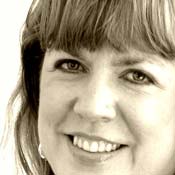It was said of Abba Agathon that for three years he lived with a stone in his mouth, until he had learnt to keep silence. (Agathon 15)
The silence of the desert elders is called hesychia, which means stillness, silence, inner quiet. However, it is much deeper than just an external quiet. A person can live alone and still experience much noise within and a person can live in the midst of a crowd and have a true sense of stillness in their heart.
There is always a shadow side to silence—the kind of silence that keeps hidden secrets and abuses. This is not the life-giving silence the desert elders seek. Silence can be poisonous, as when someone's voice is being silenced or when we silence ourselves out of resentment or anger. Think of times when you have engaged silence as a weapon in a relationship. There is also the silence of hopelessness or giving up, feeling overwhelmed by life. Or silence that comes when we feel another has all the answers and our voice doesn't matter.
The desert monks are talking about silence that is life-giving. They urge us to seek a particular quality of silence that is attentive and emerges from a place of calm and peace. Our freedom to be silent in this way indicates our freedom from resentment and its power over us. Authentic silence is very challenging to achieve.
Meister Eckhart wrote, "There is nothing so much like God as silence." When we experience moments when we find ourselves releasing words and simply entering into an experience of wonder and beholding, this is the silence of God, moments when we are arrested by life's beauty.
Silence is challenging. We create all kinds of distractions and noise in our lives so we can avoid it. Thomas Merton writes about people who go to church and lead good lives but struggle with quiet:
Interior solitude is impossible for them. They fear it. They do everything they can to escape it. What is worse, they try to draw everyone else into activities as senseless and as devouring as their own. They are great promoters of useless work. They love to organize meetings and banquets and conferences and lectures. They print circulars, write letters, talk for hours on the telephone in order that they may gather a hundred people together in a large room where they will all fill the air with smoke and make a great deal of noise and roar at one another and clap their hands and stagger home at last patting one another on the back with the assurance that they have all done great things to spread the Kingdom of God.
Merton is fierce in his critique of all the ways we cling to words to feel productive, while never making space to surrender into the unknowing of silence and experience silence as beyond all of our good words and intentions. Silence is what makes our actions meaningful, not the other way around.
The desert monks invite us to consider what it means to be selective about our words. Cultivating silence is about making space for another voice to speak. Silence is a presence rather than an absence. I can fill my day with endless words or I can choose when to speak and when to keep silent.
Abba Poemen said: "A (person) may seem to be silent, but if his heart is condemning others he is babbling ceaselessly. But there may be another who talks from morning till night and yet he is truly silent; that is, he says nothing that is not profitable." (Poemen 27)
Regular practice of silent prayer and meditation helps us to grow aware of the chatter of our minds and the judgments we carry about ourselves and others. By becoming fully present to these thoughts and being compassionate with ourselves, we can start to notice when they rise in everyday life. The desert elders remind us to pay attention to our inner judgments as a form of noise which poisons the silence we so desperately seek.
Sitting in your cell requires patience to not flee back into the world of distraction and numbness. It means being fully present to our inner life without anxiety. Interior peace comes through sitting in silence, through attentiveness and watchfulness.
Much of the time I find silence a deep source of consolation. However, there are many times when I find myself wrestling during my silent practice: watching the clock, feeling impatient, restless, distracted. The tempting thoughts arise that I could get up early and walk away, that I wasn't really present that day and so could try again tomorrow. And yet the call is precisely to stay with the practice when things become difficult. The desert elders said this was a lifelong struggle. They considered themselves beginners on the spiritual path. I try to remember this during my inner debate about staying put. I try to smile at myself. If these wise elders were beginners, then certainly I have only just begun to explore the possible depths of silence.





